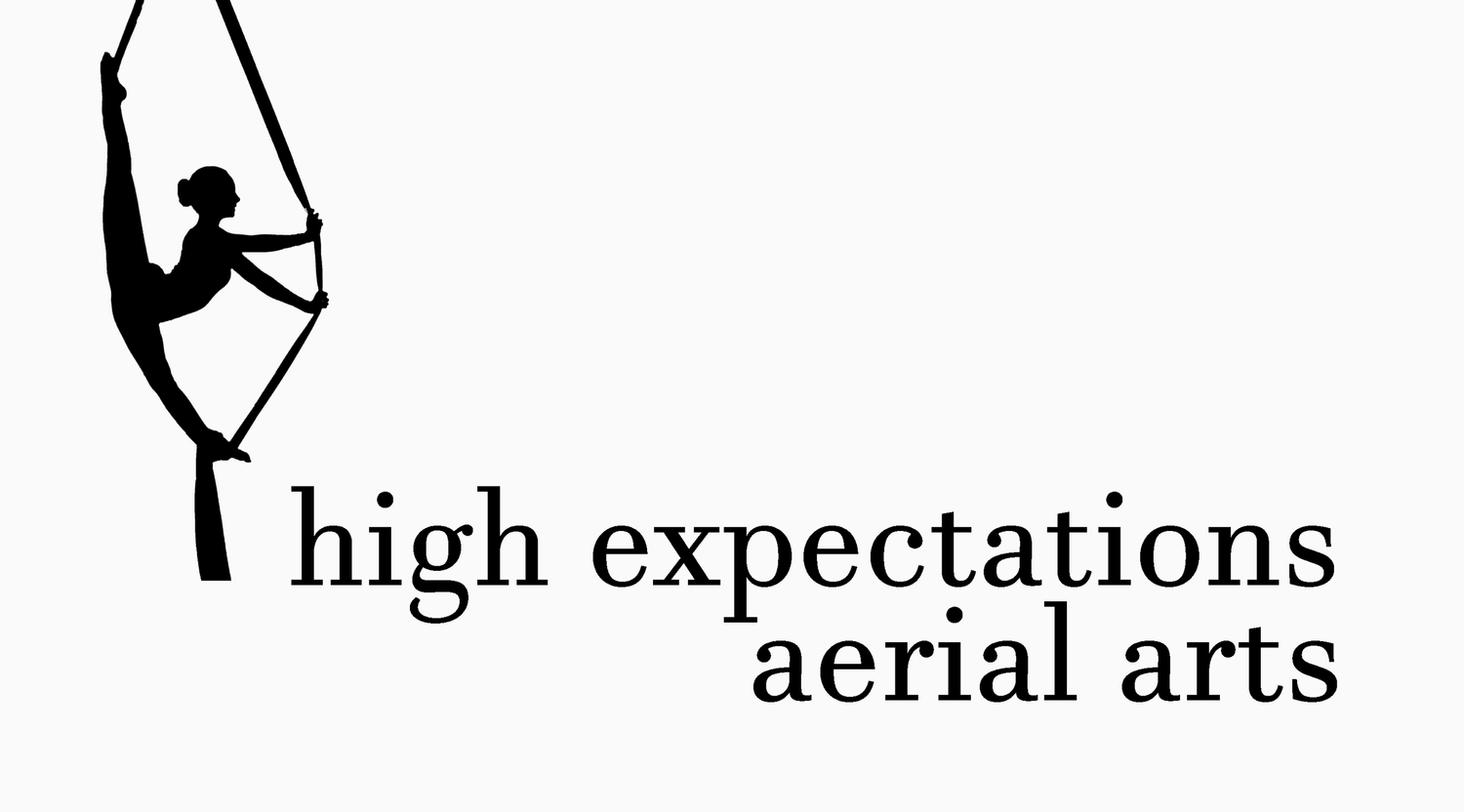How do I choose a good aerial or circus arts school for my child?

If your kids are anything like mine, they want to do circus all day, every day. I teach them, as well as the many kids that come through our program every week, and there is something magical about children and circus. They bring such a playfulness to it! I love it.
But there are risks involved with aerial, just like many other physical activities, and it’s important to know what those risks are and be able to identify safe environments before your child is 20 feet off the ground. While there are many factors that go into finding a safe training environment for your child, these are the minimum issues you should be concerned with. Aside from these, trust your intuition and keep asking questions as often as you need to. If an instructor or studio owner doesn’t like your questions, that’s a red flag.
What training or certifications do the instructors have?
Not all great instructors have teacher training, but teacher training can be a fantastic marker of how knowledgeable an instructor is. The top teacher training schools out there will include basic rigging training as well, so
Who rigged the space?
Do they have experience with aerial rigging? Have they had their beams/ceilings rated by a structural engineer? While you won't be able to evaluate whether the rigging is correct, you can watch for blatant things, like old equipment, strange configurations, or things that just don't "look right."
Do they use mats?
This is an really important one. Beginners - but especially young children - can easily slide or slip off equipment, and having a thick crash mat (at least 6-8 inches in thickness) can mean the difference between a soft landing and an injury.
Do they regularly inspect their equipment?
Ask the instructor or studio owner how often they inspect their equipment. Ideally, they should be visually inspecting before very class, and conducting a complete inspection every six months. You can even ask to see their inspection records!
Does the space appear clean, well-organized, and in good condition?
A culture of safety will be reflected in the appearance of the overall studio space. Is there clutter underneath aerial equipment? Are the floors dirty? Do instructors appear to have everything they need easily at-hand (mats, first aid kit, release forms, etc.)?
Are there clearly-posted rules?
And do instructors review and enforce the rules with students? Brand new beginners might not understand the safety risks of aerial, so it's important that instructors take the time to review the expectations and communicate how everyone can work to stay safe.
Does the instructor do a good warm-up and cool-down?
A solid warm-up is crucial to a safe aerial practice, and a good teacher will take time to lead classes through a total-body warm-up that includes light cardio, mobility for all major joints/muscles groups, and very light stretching. A cool-down at the end of class should include restorative stretches and breathing to slow down the breath and heart-rate. Although children usually tend to need less of a warm-up than adults, it should never be skipped entirely.
Is the instructor spotting (especially with brand-new beginners and young children)?
Spotting is the practice of assisting students with hands-on pressure or help. Young children can sometimes do unexpected things, so look for a teacher who remains in contact with students as they move through poses. As students mature and gain confidence, teachers will spot less, but when first starting, good spotting will keep students safe.
Does the studio offer different level classes? If so, can instructors articulate how students will progress through different levels?
Aerial builds on foundational skills, and specific skills must be learned before students can progress to more difficult sequences, drops, and tricks. It is normal for students - especially younger children who are beginners - to spend months doing the same skills over and over. If instructors are moving students too quickly into drops and higher level skills, the potential for injury increases. Ask instructors about how your child is progressing.
Children love circus arts because of the playful nature and challenge of conquering new skills. Choosing a good school just requires some basic knowledge and a willingness to ask questions. Happy flying!
High Expectations Aerial Arts is located in Memphis, TN and offers classes for adults and children. Visit our schedule page for more details on our classes.
